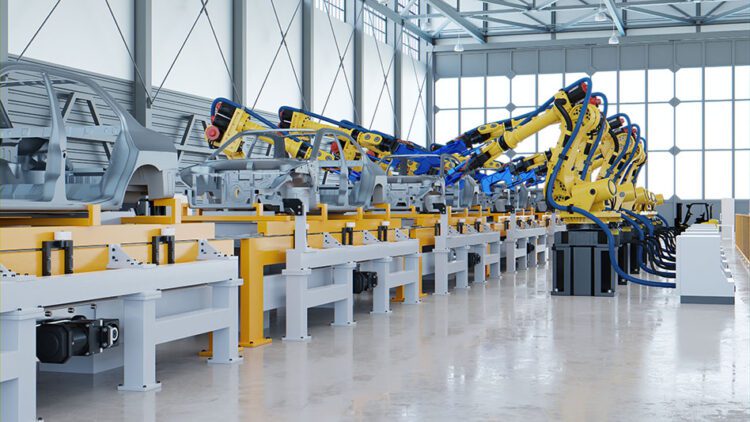The advent of Industry 4.0 has ushered in a transformative era for manufacturing. At the epicenter of this revolution are “smart factories” — digitally connected and automated production facilities that offer unprecedented levels of efficiency, flexibility, and intelligence. As the global appetite for electronics continues to surge, smart factories are playing a pivotal role in catering to this demand. India, with its mix of technological prowess and industrial ambition, is increasingly embracing this automated paradigm.
“Where machines speak to machines and data shapes destiny, smart factories are sculpting the future of electronics manufacturing.”
1. Connected Ecosystems
At the core of a smart factory is its interconnected infrastructure. Sensors, IoT devices, and advanced communication networks enable a continuous flow of information between machines, systems, and human operators.
2. Predictive Maintenance
Downtime in electronics manufacturing can be costly. Through machine learning algorithms and real-time data analysis, predictive maintenance tools forecast potential equipment failures, allowing timely interventions and reducing unplanned halts.
3. Customized Production
One of the standout features of smart factories is their ability to adapt. Automation and digitization enable rapid configuration changes, allowing for customized production runs to meet specific market or consumer demands.
4. Real-time Quality Checks
Advanced vision systems and sensors continuously monitor the production process, ensuring product quality and consistency. Defects, if any, are immediately identified and rectified, significantly improving yield rates.
5. Energy Efficiency
Smart factories are, by design, eco-conscious. Intelligent systems optimize energy consumption, while data analytics identify areas for further environmental impact reduction.
6. Human-Machine Collaboration
The image of a smart factory is not one devoid of human touch. Instead, human expertise collaborates seamlessly with automation, with robots and operators working side by side, complementing each other’s strengths.
7. Data-driven Decision Making
Data is the lifeblood of smart factories. By harnessing vast amounts of production, inventory, and market data, these factories facilitate informed, agile, and strategic decision-making at every level.
“In the symphony of silicons and systems, smart factories resonate with rhythms of innovation, integration, and inspiration.”
In sum, smart factories represent more than just automation. They are a holistic shift in manufacturing philosophy, one that combines technological innovation with strategic vision. As India continues to invest in and develop these intelligent manufacturing hubs, it fortifies its position in the global electronics arena.



















